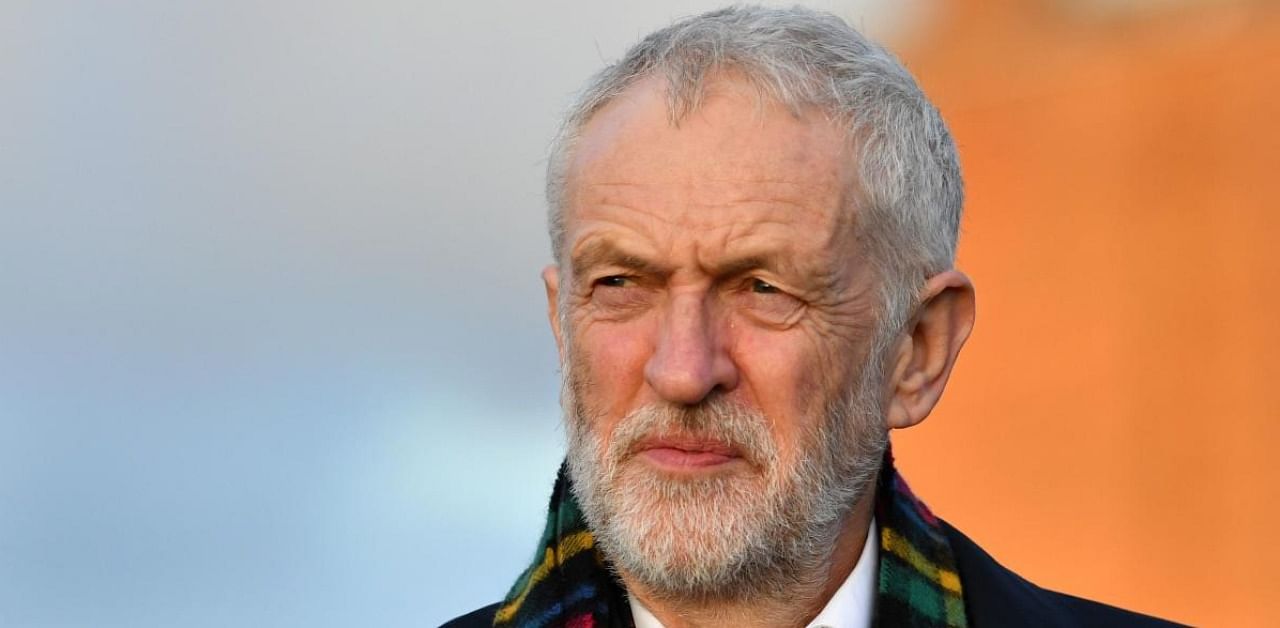
By Therese Raphael,
British voters dealt Jeremy Corbyn a devastating defeat in last December’s general election. But it was the report published Thursday on anti-Semitism in the Labour Party under his leadership that will truly define his legacy. He has been suspended from the party that he claims to have loved, but in which a nasty culture of bigotry flourished while he was in charge.
Keir Starmer, Corbyn’s successor, still has a tough battle ahead to make sure this tendency is rooted out of the organization. The 101-page report couldn’t have been more damning. The UK’s Equality and Human Rights Commission said the party was guilty of discrimination against Jews and breaking the law. It breached the 2010 Equality Act, introduced by a Labour government, through political interference with anti-Semitism complaints and a failure to provide proper training for those handling the complaints.
It also found the party guilty of harassing Jewish members “through its agents” by suggesting claims of anti-Semitism were fake or politicized. While Labour had effective procedures for sexual harassment, it didn’t for this ugly form of prejudice.
This is strong stuff and a validation of many complaints over many years. Back in 2019, one of Labour’s own members of Parliament, Luciana Berger, resigned from the party over “institutional anti-Semitism” and what she called “a culture of bullying, bigotry and intimidation.” The report is a victory for her and others like her.
Corbyn’s reaction to the report’s findings was typical. anti-Semitism is horrible and wrong, he said, as he has on many occasions. And then came the inevitable “but.” But his record in office had improved over time. But the charges of anti-Semitism in the Labour Party were “dramatically overstated for political reasons.”
The most generous possible interpretation is that Corbyn has a blind spot when it comes to this issue, and that he genuinely believes it was often a convenient stick with which to beat him. But — that word again — there is little reason to be generous. The damage done to those who suffered discrimination, and the impact on the Jewish community, justifies the anger.
Whatever the root cause, Corbyn’s failed leadership on the issue sullied Labour’s reputation as the party of social justice and non-discrimination and contributed to the staggering scale of its election defeat to Boris Johnson’s Conservatives.
Tories have rushed to note that Starmer was part of Corbyn’s shadow cabinet. But he spoke out repeatedly against anti-Semitism and forged closer ties with the Jewish community. His integrity isn’t in question.
Starmer’s ambitions meant he wasn’t willing to put his job on the line the way Berger did. And yet his response to Thursday’s report signaled his seriousness. Starmer called it “a day of shame for the Labour Party,” before promptly suspending Corbyn pending an investigation. Corbyn, who didn’t accept all of the report’s findings, will contest the suspension.
“Never again will Labour let you down,” Starmer told Jewish people.
What matters now is whether he wins the bigger existential battle against the Corbyn-supporting hard left of the Labour Party — a fight that was always going to happen at some point. Starmer has promised to implement all recommendations of the report in full within six weeks, including the establishment of an independent complaints process.
Changing the party culture — and winning the battle with the hard left — won’t be easy, as much of the reaction from Corbyn supporters testified. The far-left Morning Star tweeted, “The true day of shame is the day the most committed antiracist who has ever led the Labour Party is suspended for telling the truth.” Former shadow chancellor John McDonnell described the suspension as “profoundly wrong.”
Just a week ago, a major figure in the party — Len McCluskey, general secretary of the Unite trade union — had to apologize after suggesting that veteran Labour politician Peter Mandelson “just goes into a room and counts his gold.” He denied that he’d used an anti-Semitic trope.
Labour is a big tent with multiple power centers. What the left of the party is calling a “civil war” may determine how deep Starmer’s changes can go, and how far Jewish people will be able to trust it again. Elections are underway to decide its powerful National Executive Committee. Union leaders will have a major say.
The suspension of Corbyn has been likened to Neil Kinnock’s expulsion of the militant wing of the party in the 1980s. If Labour is to become electable again, never mind respectable again, this is a contest Starmer must win.